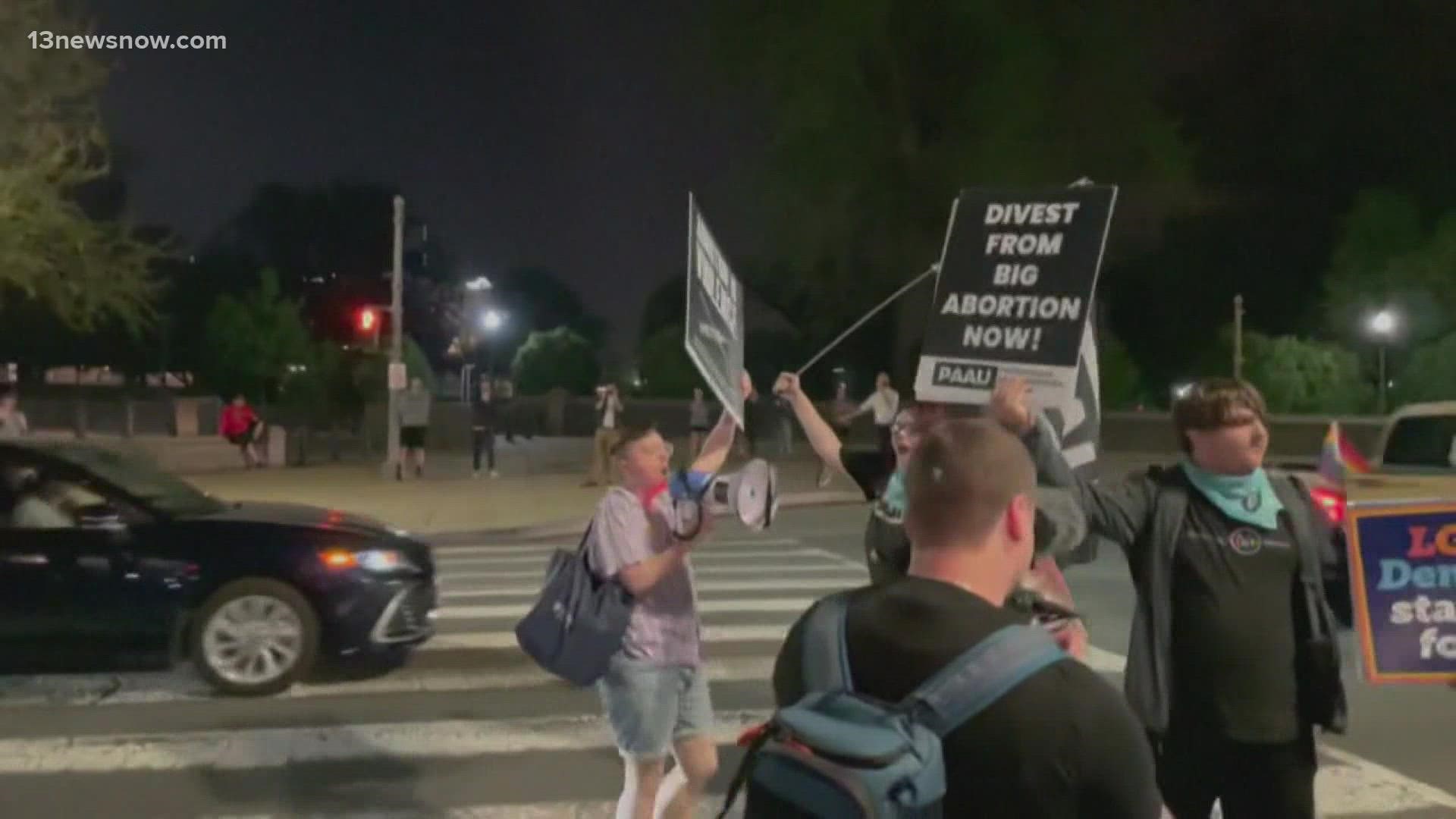NORFOLK, Va. — After a draft opinion from the Supreme Court was leaked Monday night, people are wondering what will happen if Roe v. Wade is overturned.
The opinion, which was obtained by Politico, would strike down the 1973 landmark case that legalized abortion across the country. The leak comes as several states have passed or are considering abortion restrictions.
While abortion is legal in both Virginia and North Carolina, there are some differences in the rules and restrictions surrounding the procedure. Here's a look at where the laws stand.
Abortion is legal in Virginia (with certain limits)
Under Virginia law, abortion is lawful within the first and second trimesters, but the procedure is more restricted afterward.
In the third trimester, the physician performing the procedure has to consult with two other physicians to decide if the continuation of the pregnancy would likely result in the death or impair the health of a woman. Additionally, life support measures have to be used if there's any evidence of viability.
The law states that before any abortion happens, the pregnant woman is required to provide written consent to the person performing the procedure.
The law also outlines who is allowed to perform the procedure. In the first trimester, a physician licensed to practice medicine and surgery and a licensed nurse practitioner "acting within such person's scope of practice" are authorized.
In the second and third trimesters, only the licensed physician can perform the procedure, but it has to be in a state-licensed hospital or a hospital operated by the Department of Behavioral Health and Developmental Services.
When Democrats held Virginia's state government in 2020, they lifted some restrictions on abortion, including a mandatory ultrasound law and a 24-hour waiting period prior to the procedure.
After retaking power in 2022, the Republican-led House of Delegates passed a bill to ban abortions once a pregnancy reaches 20 weeks, but the legislation was defeated in the Democratic-led Virginia Senate.
North Carolina has more restrictions than Virginia
North Carolina requires a 72-hour waiting period, during which a physician or qualified professional has to provide the following information to a woman:
- The name of the physician who will perform the procedure.
- The medical risks associated with the procedure.
- The probable gestational age of the unborn child at the time the procedure is performed.
- The medical risks associated with carrying the child to term.
- The display of a real-time view of the unborn child and heart tone monitoring.
- Printed materials and a website with information about pregnancy assistance and scientific information about the unborn child at various gestational ages.
- If the physician has liability insurance for malpractice or not.
- The location of a hospital offering obstetrical or gynecological care within 30 miles of the location where the procedure is performed.
According to the Guttmacher Institute, a pro-abortion rights organization, some other restrictions include a ban on telemedicine to administer medication-based abortion, parental consent for minors and limited public funding.
Does either state have a trigger ban?
No.
According to the New York Times, the states that have trigger bans are Arkansas, Idaho, Kentucky, Louisiana, Mississippi, Missouri, North Dakota, Oklahoma, South Dakota, Tennessee, Texas, Utah and Wyoming.
Trigger bans would automatically start an abortion ban within their borders if the Supreme Court allows it.

